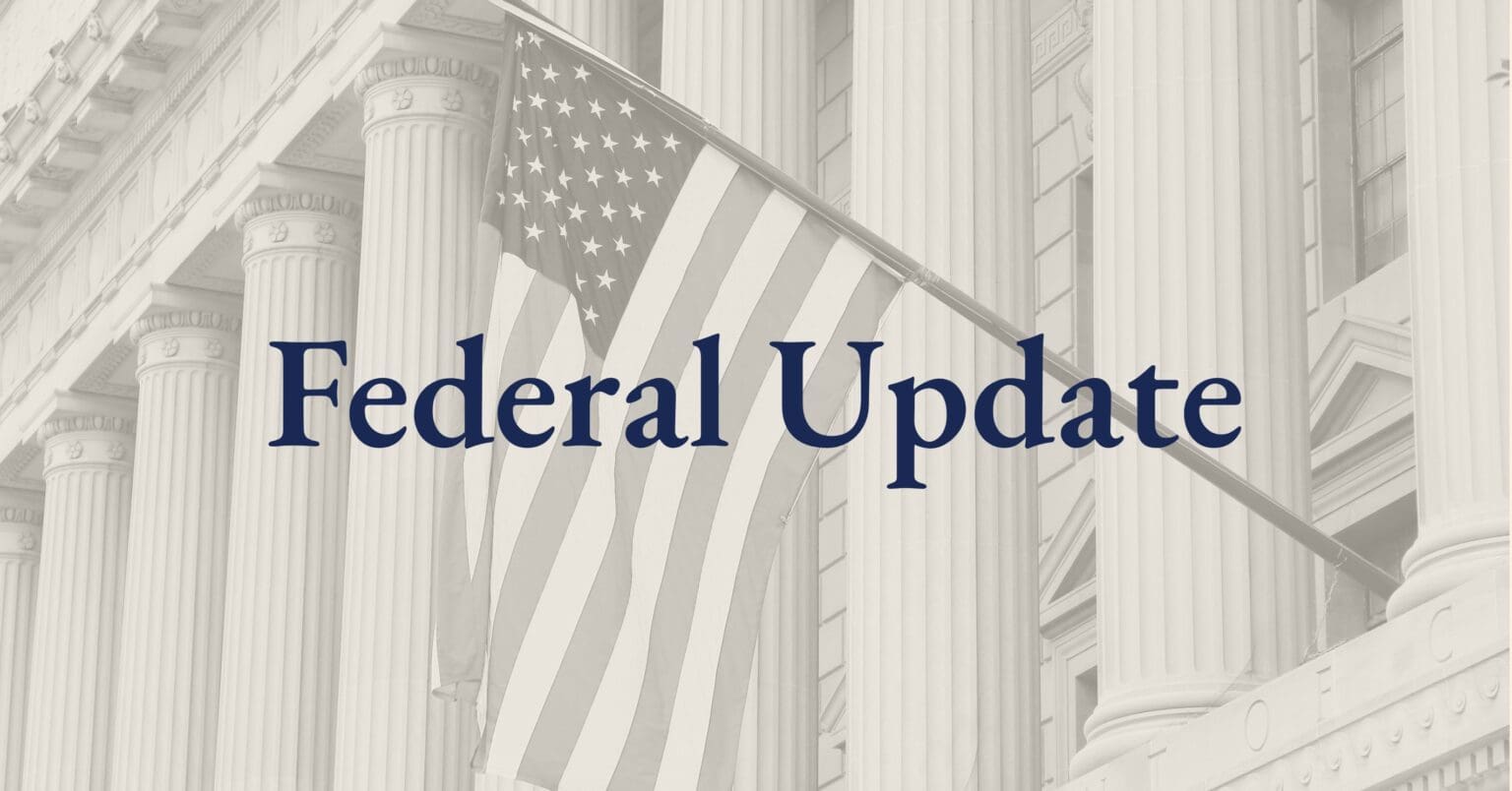Federal Update: Shutdown Drags on with No Breakthrough in Sight
Back to News
Negotiations to end the federal government shutdown remain at a standstill, with no meaningful progress over the past week. On Thursday, the Senate rejected competing funding proposals for the seventh time, all but guaranteeing that the shutdown will extend into a third week. The upper chamber is expected to vote again on the two stopgap measures as soon as Friday, but with no votes flipping since last week, there is little indication that lawmakers are close to breaking the impasse.
Several critical deadlines are now looming, adding pressure on lawmakers to reach an agreement. The first missed paycheck for many federal employees is expected this Friday, followed by a more politically sensitive deadline on October 15, when active-duty military personnel could also miss their pay if Congress does not act. Historically, missed military pay has been one of the most consequential turning points during shutdowns, often intensifying pressure on both parties to strike a deal.
For his part, House Speaker Mike Johnson (R-LA) has made clear that he does not intend to bring a standalone bill to pay troops to the floor before October 15. GOP leaders contend that advancing a separate troop pay bill would weaken their negotiating position with Senate Democrats. Johnson also announced that the House will not return to session next week and will remain on 48-hour recall notice until the Senate acts on the House-passed continuing resolution.
Meanwhile, talks remain stalled over the extension of enhanced Affordable Care Act premium subsidies, which are set to expire at the end of the year. Democrats insist they will not support reopening the government without a firm agreement to extend the subsidies, while Republicans maintain they will not negotiate on that issue while the government remains closed.
The White House has also signaled that prolonged inaction could lead to mass layoffs and rescission of additional federal funds. Democrats have dismissed the layoff threats as legally questionable, saying such moves would likely face swift legal challenges.
FEMA Delays Major Disaster Reimbursements and Preparedness Grants to States
A recent federal report revealed that FEMA has postponed $10.9 billion in reimbursements that were slated to be distributed to 45 states during the final months of Fiscal Year (FY) 2025. The payments, which were intended to cover pandemic-related emergency costs, have been shifted to FY 2026. While the administration has not indicated that the funding will be permanently withheld, no clear timeline has been provided for when the reimbursements will be made.
FEMA is also withholding more than $300 million in Emergency Management Performance Grants until states verify that their population estimates – which are used to calculate award amounts – exclude individuals who have been deported. These grants play a critical role in helping local communities prepare for disasters by funding emergency management staff, training, equipment, and public education. The funding flows first to the states, which then distribute it to counties and other local jurisdictions to support preparedness activities.
States began receiving notices last week directing them to submit a population certification that explains their methodology and confirms that individuals who have been deported are not included in their population counts. Although federal law designates U.S. Census Bureau data as the basis for calculating these grants, FEMA is now requiring states to provide additional verification before funds are released. According to the notice, FEMA will lift the funding hold once it has reviewed and approved each state’s methodology and certification.
Bill Introduced to Help Low-Income Households Improve Resilience
Congressman Kevin Mullin (CA-15) recently introduced legislation (H.R. 5650) – the Weatherization Resilience and Adaptation Program (WRAP) Act – that would help low-income homeowners and affordable housing providers strengthen their properties against weather-related disasters. Specifically, the bill would establish a state- and Tribal-administered grant program to provide direct assistance for resilience improvements, such as structural upgrades to better withstand extreme weather events. It would also require outreach to households on resilience measures and direct the National Institute of Standards and Technology to develop national standards for dwelling and property resilience, guiding how funds can be used.